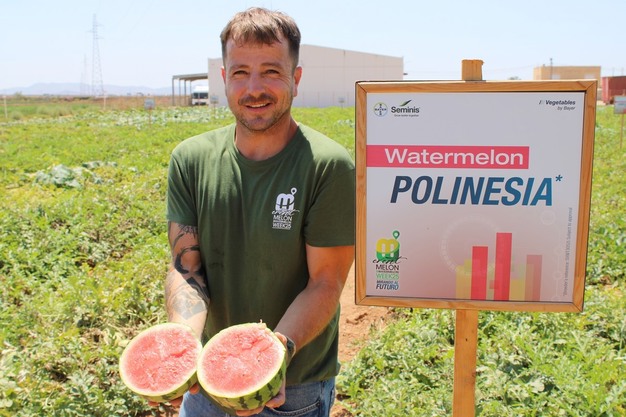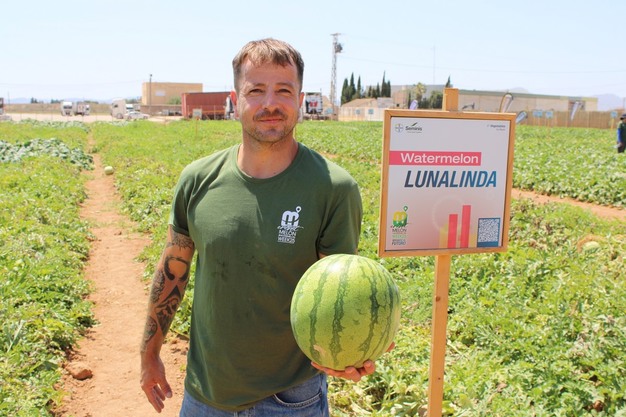Seminis-Bayer is celebrating Melon & Watermelon Week, which has served to showcase solutions to tackle climate change and the challenges of production for the growers, without forgetting the importance of delivering tasty fruit.
In a race for new developments, José M.ª Román, sales technician for Seminis-Bayer, has presented Polinesia, which responds to “our search for a more productive pollinator with a firmer flesh. The problem with the July and August productions is that, when triploid (seedless) watermelons are ready to be harvested, the pollinator is already overripe and won’t reach the supermarkets or the consumer in optimum condition. To address this, we have developed Polinesia, a pollinator with firm flesh and a longer cycle, as well as a rounder shape, which also retains sugars and has a good flavor, making it very attractive to the public.”

According to Román, consumer trends “are set both by supermarkets and, of course, by the end consumer. In Spain, preferences have shifted towards smaller sizes and seedless watermelons. Large-sized watermelons used to be the norm in the country, but nowadays, families have fewer members and have limited space available. Our formats are adapted to these trends and reach 4-5 kg on average. For those who prefer the traditional black watermelon with seeds, we have our Pata Negra.”
Apart from consumer preferences, another basic aspect is resistance to powdery mildew or aphids, among other threats. Román says, “We are working on pollinator lines with resistance to powdery mildew. Our research is ongoing, and we are investing in resistance. We want tasty fruit, but we also have to make production easier for the growers with resistance to viruses or diseases such as PABYV and various pests.”
The increasingly higher temperatures are another struggle. “Temperatures are soaring, so in addition to monitoring the fruit, you also have to keep an eye on the plant’s vigor. The weather is more extreme, with rain and heat waves at unusual periods. We have to obtain more resilient varieties, adapted to the changing conditions we are facing,” says the sales representative.

In summary, “we have to take care of production, flavor, and plant vigor, while also making sure new varieties are adapted to current climatic conditions and, of course, that they can resist certain threats. A good example among our watermelons is the Lunalinda variety, which is bringing back the fruit’s traditional flavor. It has an intense red flesh and is very sweet, with a crunchy bite and a high yield. The Lunalinda is planted in Senegal, Portugal, and Spain; we have tested it in different scenarios, and it has developed excellently.”
For more information:
José M.ª Román
Seminis-Bayer
Tel.: +34 659 56 17 31
[email protected]
www.vegetables.bayer.com
Source: The Plantations International Agroforestry Group of Companies
